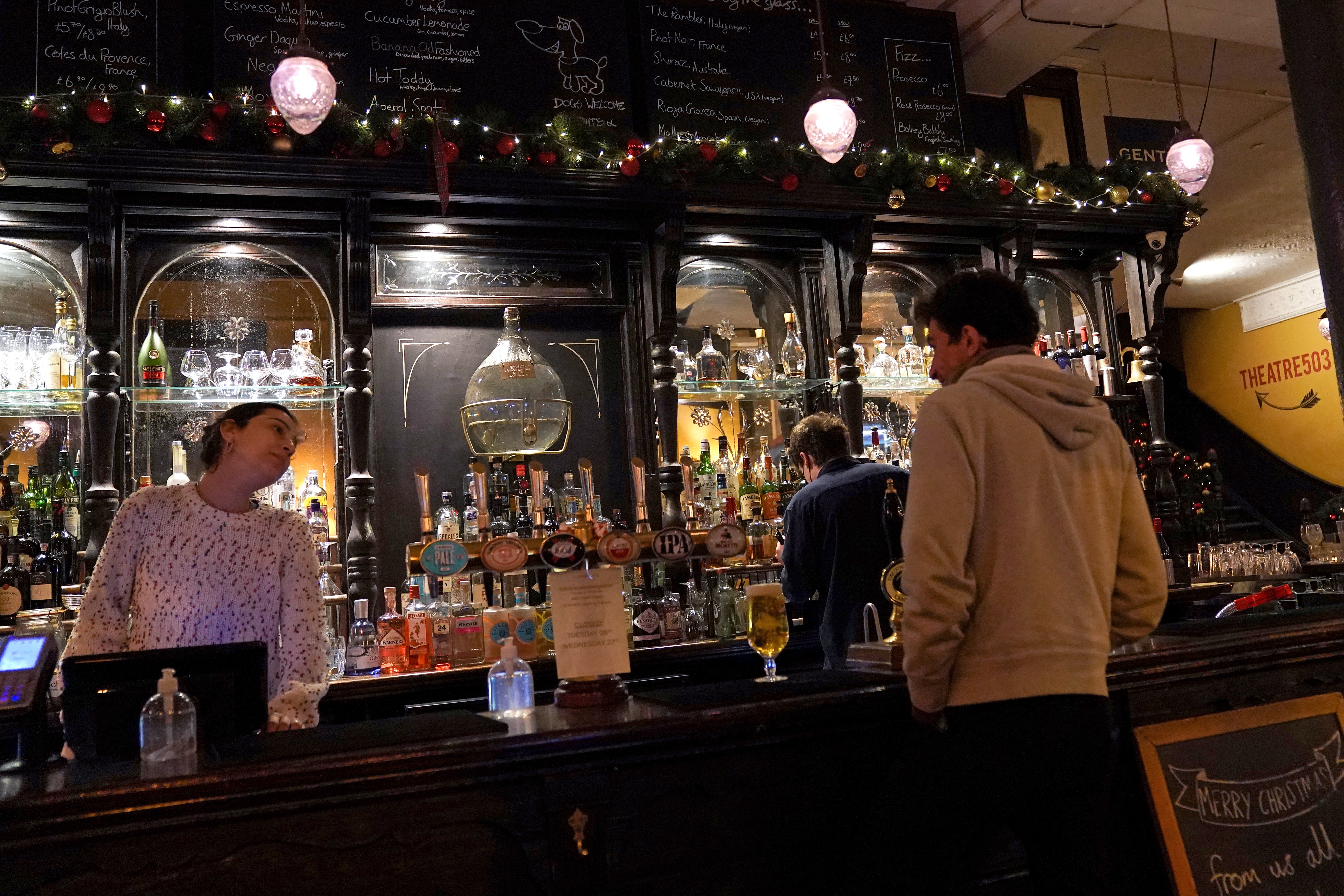Ravehearts, really? English venues fear ruinously quiet NYE despite talk of Scottish and Welsh reveller boost
‘This idea that we will see a boom night sounds like government spin to take attention away from how desperately this industry needs support’

They have been called “Ravehearts”: thousands of Scots and Welsh who are said to be planning on heading to England for a New Year’s Eve without coronavirus restrictions.
Reports suggest 100,000 revellers may make the journey across the borders after Boris Johnson confirmed that there would be no curbs on pubs, restaurants and nightclubs here. This potential invasion, some suggest, could result in a bumper night for English venues.
Yet, in the border cities and villages that would most likely benefit, night-time chiefs are feeling far less exuberant than such booster-ish predictions may suggest.
“I keep reading we’re going to be inundated with coach loads of people,” says Brendan Murphy, founder of BARBI, the Bristol Association of Restaurants, Bars and Independents. “But the government [in England] has effectively told people they should stay at home and that’s what they’ve been doing all Christmas. It has been ruinous for the night-time economy.
“So, a few coaches from Wales – as welcome as they are – are not going to make up for the thousands and thousands of people who we know are planning on staying in on Friday.”
In raw figures, he says, this is simple.
Bristol – which is a 45-minute train ride from Cardiff – would normally expect around 100,000 people to be out on a typical New Year’s Eve. Hospitality bosses estimate that figure will be halved this year. “You would need everyone who was going to go out in Cardiff to come here instead to make up [the shortfall],” says Murphy, whose organisation has 400 member venues in the city. “That would be lovely but it’s not going to happen.”
Venues in the south-west city have seen their December revenue drop by an average £46,000 compared to a normal year, according to BARBI figures.
“This idea that we will see a boom night sounds like government spin to take attention away from how desperately this industry needs support,” he says. “It’s not a few Welsh customers that will help places survive, it’s an extension of business rate and VAT relief and a reintroduction of a furlough scheme.”
The new rules in both Scotland and Wales mean that nightclubs are closed and that pubs must abide by the rule of six and offer table service only.

Yet, even without such restrictions, two main factors are expected to result in a relatively quiet new year across England too, experts reckon.
The first is an apparent widespread reticence to overly socialise amid ongoing government warnings to be “cautious” in the face of the still surging Omicron variant. The second: the weeks of uncertainty over whether venues would even be open on 31 December has led, hospitality chiefs suggest, to more people than ever planning home-based celebrations.
Now, this week, a third factor has also been added into the mix: the current shortage of lateral flow testing kits.
A surge in restaurant and event cancellations is said to have occurred over the last 48 hours as people have scrapped plans after finding themselves unable to check if they are unwittingly carrying the virus. “Venues have been losing trade [all holiday] because people are deciding to stay in,” says Murphy. “Now they’re also losing trade because, even those people who want to go out, cannot get the tests to do so.”
Some 140 miles north in Liverpool – about 20 miles from the Welsh border – John Hughes, founder of the Liverpool Nightlife community interest company, echoes Murphy’s frustrations.
Here, early feedback suggests venues have done about half their usual custom over the festive period. One venue that would usually take £80,000 has made just £10,000.
“We’ll take all the custom we can get at the moment because it’s so quiet,” says Hughes. “But are we hearing of large numbers from Wales? I can’t say we are. Hotels haven’t been telling me they’re getting booked out and event tickets – some are doing well but others are slow.
“It’s been a grim year and 2022 isn’t going to start any better as far as I can see.”
Is he expecting closures over the coming months? “I’m expecting a lot of them,” comes the reply. “I’ve been amazed how places have found innovative ways to keep going but that can’t last forever if money isn’t coming into the tills.”

None of this, of course, makes it any easier for Welsh or Scottish venues that will certainly lose some business on Friday as a result of restrictions. The idea of potential revenue going to England is “not good for morale,” as Edmund Inkin, a member of the Welsh Independent Restaurant Collective, told The Guardian.
Yet even in Monmouth – a town where the outskirts are split by the Welsh-English border – there appears to be a sense that, given how disastrous the panedmic has been on the hospitality sector as a whole, it is probably overstating things to suggest English pubs can now boom at the expense of their Welsh counterparts.
Here, there are two pubs within 300 yards or so of each other. The Bell sits in England; The Boat is across the Redbrook Bridge in Wales. Both, as it turns out, are sold out for New Year’s Eve.
“It’s a bit daft that there’s one rule for one side of the river and one rule for another,” says Harry Bicker, barman at The Boat. “It doesn’t make sense. But it’s not like we’re not getting customers in. It’s just they have to sit down before they get served, which a lot of our locals quite like.”
Across at The Bell, owner Nick Till agrees. “This thing that we’re seeing hoards of people coming across the border because of the rule-of-six, it’s just not happening,” he says. “It’s make-belief. Most people have been doing what they always do: having a drink in both pubs.”
Join our commenting forum
Join thought-provoking conversations, follow other Independent readers and see their replies
Comments
Bookmark popover
Removed from bookmarks